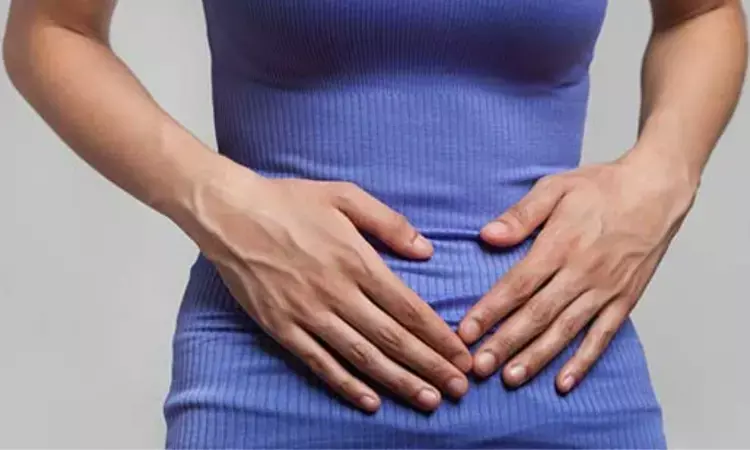- Home
- Medical news & Guidelines
- Anesthesiology
- Cardiology and CTVS
- Critical Care
- Dentistry
- Dermatology
- Diabetes and Endocrinology
- ENT
- Gastroenterology
- Medicine
- Nephrology
- Neurology
- Obstretics-Gynaecology
- Oncology
- Ophthalmology
- Orthopaedics
- Pediatrics-Neonatology
- Psychiatry
- Pulmonology
- Radiology
- Surgery
- Urology
- Laboratory Medicine
- Diet
- Nursing
- Paramedical
- Physiotherapy
- Health news
- Fact Check
- Bone Health Fact Check
- Brain Health Fact Check
- Cancer Related Fact Check
- Child Care Fact Check
- Dental and oral health fact check
- Diabetes and metabolic health fact check
- Diet and Nutrition Fact Check
- Eye and ENT Care Fact Check
- Fitness fact check
- Gut health fact check
- Heart health fact check
- Kidney health fact check
- Medical education fact check
- Men's health fact check
- Respiratory fact check
- Skin and hair care fact check
- Vaccine and Immunization fact check
- Women's health fact check
- AYUSH
- State News
- Andaman and Nicobar Islands
- Andhra Pradesh
- Arunachal Pradesh
- Assam
- Bihar
- Chandigarh
- Chattisgarh
- Dadra and Nagar Haveli
- Daman and Diu
- Delhi
- Goa
- Gujarat
- Haryana
- Himachal Pradesh
- Jammu & Kashmir
- Jharkhand
- Karnataka
- Kerala
- Ladakh
- Lakshadweep
- Madhya Pradesh
- Maharashtra
- Manipur
- Meghalaya
- Mizoram
- Nagaland
- Odisha
- Puducherry
- Punjab
- Rajasthan
- Sikkim
- Tamil Nadu
- Telangana
- Tripura
- Uttar Pradesh
- Uttrakhand
- West Bengal
- Medical Education
- Industry
Urinary urobiome modification tied to improvement of urgency urinary incontinence symptoms after taking mirabegron

A recent study by Thomas Halverson and team suggested that longitudinal urobiome modifications are linked to symptom relief in adult women taking mirabegron for urgency urinary incontinence (UUI). The findings were published in the International Urogynecology Journal.
Mirabegron, a beta-3 agonist, is used to treat urge urine incontinence. This study looked at the relationship between symptom improvement and urobiome features in adult women who were given mirabegron for UUI treatment.
The Female Pelvic Medicine and Reconstructive Surgery Centre at Loyola University Medical Centre enrolled UUI patients who chose mirabegron and agreed to take part in this 12-week, open label study. The overactive bladder questionnaire (OAB-Q) and a catheterized urine sample were provided by participants after eligibility screening and research permission. These steps were taken at baseline, 4, 8, and 12 weeks. Based on the validated Patient Global Symptom Control questionnaire score to categorize symptom response (responder vs. nonresponder [PGSC score 3]), the primary outcome, symptom improvement at 12 weeks, was symptom improvement. The Expanded Quantitative Urine Culture (EQUC) procedure was used to process urine samples.
The key findings of this study were:
1. 83 participants—with a mean age of 68 years—completed the baseline evaluation.
2. There were 16 respondents and 31 nonresponders out of the 47 participants whose primary outcome data and sample analyses were available; responder groups shared several demographic characteristics.
3. The majority of subjects had living microorganisms.
4. Between groups, there were no appreciable variations in baseline alpha diversity (within sample).
5. However, during the 12-week follow-up, the responder urobiome had significantly more genera (p = 0.027), was significantly more diversified, and had become significantly wealthier than the nonresponder urobiome.
Reference:
Halverson, T., Mueller, E. R., Brubaker, L., & Wolfe, A. J. (2022). Symptom improvement with mirabegron treatment is associated with urobiome changes in adult women. In International Urogynecology Journal (Vol. 33, Issue 5, pp. 1319–1328). Springer Science and Business Media LLC. https://doi.org/10.1007/s00192-022-05190-w
Neuroscience Masters graduate
Jacinthlyn Sylvia, a Neuroscience Master's graduate from Chennai has worked extensively in deciphering the neurobiology of cognition and motor control in aging. She also has spread-out exposure to Neurosurgery from her Bachelor’s. She is currently involved in active Neuro-Oncology research. She is an upcoming neuroscientist with a fiery passion for writing. Her news cover at Medical Dialogues feature recent discoveries and updates from the healthcare and biomedical research fields. She can be reached at editorial@medicaldialogues.in
Dr Kamal Kant Kohli-MBBS, DTCD- a chest specialist with more than 30 years of practice and a flair for writing clinical articles, Dr Kamal Kant Kohli joined Medical Dialogues as a Chief Editor of Medical News. Besides writing articles, as an editor, he proofreads and verifies all the medical content published on Medical Dialogues including those coming from journals, studies,medical conferences,guidelines etc. Email: drkohli@medicaldialogues.in. Contact no. 011-43720751


